Speaker
Description
In this paper a nonlinear finite element analysis of reinforced concrete frame elements exposed to monotonic and cyclic loading is presented. The analysis was executed using 3D solid elements in DIANA FEA and frame elements with localized nonlinearities in SAP 2000. The results were verified against the experimental testing conducted at the Institute for Materials and Structures of the Faculty of Civil Engineering University of Sarajevo. The static cyclic tests include nine cantilever beams (20/20/200 cm) reinforced with the same longitudinal reinforcement and different transverse confining reinforcement. Occurrence and development of cracks on the beams were monitored and mapped during the experiments. Major cracks localize in the plastic hinge whose length is roughly equal to cross-sectional height. This observation matches well with the recommendations given in EC 8. The influence of the normal force according to the first and second order theory, the percentage of longitudinal reinforcement, the arrangement of stirrups on the load bearing capacity and ductility of the elements were analysed. Maekawa - Fukuura constitutive model was assumed for concrete while embedded reinforcement was simulated using von Mises, Menegotto - Pinto, Monti - Nuti and JSCE 2012 material models depending on monotonic or cyclic loading protocol. The effect of simple and specially dedicated reinforcement models capable of reproducing buckling or Bauschinger effect on the column behaviour is significant. The influence of mesh density and iterative approach on crack localization and crack width was investigated. The performance of smeared cracking approach and localized nonlinearity concept was critically assessed.
| Keywords | Experimental testing, nolinear FEA, RC column, smeared cracking, 3D solid, DIANA FEA, SAP2000 |
|---|---|
| DOI | https://doi.org/10.5592/CO/1CroCEE.2021.116 |







